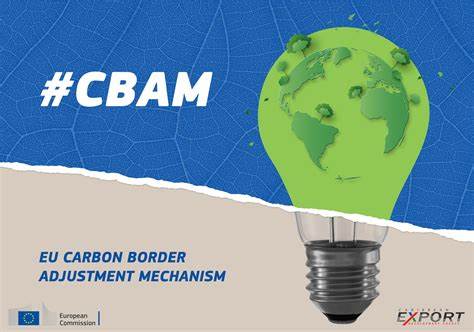
ESG Management Is A Framework for Assessing A Company's Sustainability and Ethical Practice Across Environmental, Social & Governance areas.
- Environmental: How the company impacts the environment through its operations, including energy use, waste generation, greenhouse gas emissions, and pollution.
- Social: How the company interacts with its employees, communities, and stakeholders, addressing issues like labor practices, human rights, diversity, and inclusion.
- Governance: How the company is managed, focusing on corporate ethics, transparency, accountability, and board composition.
The Evolution of ESG
From Roots to Current Model
The framework we know as ESG today didn’t spring up fully formed. It’s the result of several historical movements and trends converging over time. Here’s a brief overview of its development:

Early Seeds
Pre-1990s
- Environmentalism: Concerns about pollution, resource depletion, and climate change fueled movements like Earth Day and the rise of environmental regulations.
- Social Responsibility: Corporate philanthropy and community engagement gained traction, leading to concepts like Corporate Social Responsibility (CSR).
- Governance: Concerns about corporate scandals and unethical behavior led to calls for improved corporate governance practices.
Taking Shape,
1990s-2000s
- Sustainable Development: The Brundtland Commission’s definition of sustainable development in 1987 emphasized the need to balance economic, social, and environmental needs.
- Investor Interest: Socially responsible investment (SRI) emerged, focusing on ethical and sustainable companies.
- Global Compact: Launched in 2000, the UN Global Compact urged businesses to adopt ten principles on human rights, labor, environment, and anti-corruption.
The Current Landscape
Present
- Integration: ESG is no longer siloed but increasingly integrated into core business strategy and decision-making.
- Metrics and Data: Standardized metrics and data platforms are being developed to improve ESG measurement and reporting.
- Stakeholder Engagement: Companies are engaging more proactively with stakeholders on ESG issues.
- Regulatory Landscape: Regulations worldwide are evolving rapidly, demanding even greater

Importance of ESG Management
Several factors contribute to the growing importance of ESG management:
- Investor Demands: Investors increasingly see strong ESG practices as indicators of long-term financial stability and growth.
- Consumer Preferences: Consumers are increasingly making purchasing decisions based on a company’s social and environmental responsibility.
- Regulatory Pressures: Governments worldwide are introducing stricter regulations on environmental and social responsibility.
- EU Market Influence: As you focus on the EU market, their emphasis on sustainability through initiatives like the European Green Deal and Non-Financial Reporting Directive makes strong ESG practices crucial.
HOW CAN A COMPANY START ESG MANAGEMENT?
These steps can help initiate your ESG journey:
- Conduct a Materiality Assessment: Identify the most relevant ESG issues for your industry, value chain, and stakeholders.
- Set Goals and Targets: Define specific, measurable, achievable, relevant, and time-bound (SMART) goals for improvement in each ESG area.
- Develop Policies and Procedures: Implement policies and procedures that address your ESG goals, ensuring compliance with relevant regulations.
- Integrate ESG into Operations: Implement practices that improve your environmental footprint, social impact, and governance practices throughout your operations.
- Measure and Report: Track your progress and report your ESG performance transparently to stakeholders.
Communication & Engagement
- Internal Stakeholders: Communicate your ESG efforts to employees through training, incentives, and recognition programs. Encourage employee participation in sustainable initiatives.
- External Stakeholders: Communicate your ESG performance through sustainability reports, website information, media engagement, and participation in industry initiatives.
- Key Stakeholders:
- Customers, Suppliers, Regulators, NGOs, Communities

ESG Management Implementation


EU Requirements
- Compliance: Meeting EU regulations like the Non-Financial Reporting Directive.
- Market Access: Demonstrating sustainability can be a requirement for certain contracts or certifications in the EU.
- Reputation and Branding: Strong ESG practices enhance your brand image and reputation among European consumers.
- Cost Savings: Resource efficiency and sustainability initiatives can lead to reduced costs.

Carbon Border Adjustment Mechanism = CBAM
- CBAM is an EU policy that will impose a carbon price on certain imported goods. By improving your carbon footprint, you can mitigate the impact of CBAM on your competitiveness.
- Product Covered Initially (as of October 2023):
- Cement, Iron and steel, Aluminium, Fertilisers, Electricity, Hydrogen
- CBAM is currently in a transitional phase, meaning it only requires reporting on embedded emissions for these products. However, the full implementation is expected to start in 2026 and will involve applying a carbon price on top of import duties for these goods.
- The EU might expand the list of covered products in the future based on their carbon intensity and risk of carbon leakage.
ESG Report Requirements

United States
- Not mandatory
- various industry-specific regulations and voluntary frameworks influence ESG reporting practices.
- Sustainability Accounting Standards Board (SASB) guidelines, Global Reporting Initiative (GRI) standards, and Task Force on Climate-Related Financial Disclosures (TCFD) recommendations.
China
- Not mandatory
- National-level guidelines like “Guidelines for Listed Companies on Information Disclosure of Environmental;
- Social Responsibility” provide general guidance. Shenzhen and Shanghai Stock Exchanges encourage ESG disclosure based on their own guidelines.
Japan, Korea, Singapore, Hong Kong
- Not Mandatory
- Financial and Government organizations provide guidelines for ESG reports.
- Hong Kong & Korea requested listed companies to include ESG information in their annual reports.
- Japan & Singapore encourage listed to provide ESG reports.
European Union
- EU CSRD will become mandatory for certain large EU and EU-listed companies from January 1, 2024, and will apply to all in-scope companies by January 1, 2028.
- Additional regulations like Taxonomy Regulation and Non-Financial Reporting Directive (NFRD) also influence ESG reporting.

KEY TAKEAWAYS
- ESG is a dynamic framework shaped by various social, economic, and environmental concerns.
- It has evolved from separate movements to a holistic approach, considering interconnected environmental, social, and governance factors.
- The evolving regulatory landscape and stakeholder demands are driving continual advancements in ESG practices.
- Remember, the journey of ESG continues to evolve.
Disclaimer: The information provided on this website regarding Environmental, Social, and Governance (ESG) practices is intended for general informational purposes only. While we strive to keep the information up-to-date and correct, we make no representations or warranties of any kind, express or implied, about the completeness, accuracy, reliability, suitability, or availability with respect to the website or the information, products, services, or related graphics contained on the website for any purpose. Any reliance you place on such information is therefore strictly at your own risk. In no event will we be liable for any loss or damage including without limitation, indirect or consequential loss or damage, or any loss or damage whatsoever arising from loss of data or profits arising out of, or in connection with, the use of this website. Please consult with a qualified professional for specific advice tailored to your situation.
